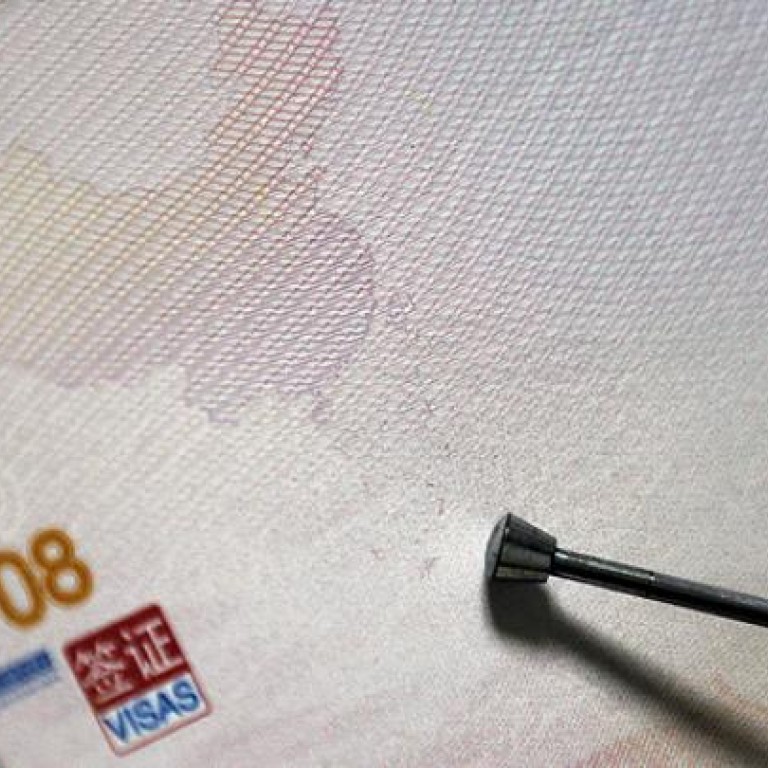
China decries attempts to 'read too much into' passport map
China said on Wednesday that people should not read too much into the placement of a new map in its passports that depicts claims to disputed maritime territory.
China said on Wednesday that people should not read too much into the placement of a new map in its passports that depicts claims to disputed territory, after the United States said it would raise concerns with Beijing over the issue.
The Philippines and Vietnam have condemned the new microchip-equipped passports, saying the map they incorporate violates their national sovereignty by marking disputed waters as Chinese territory.
India, which also claims two Himalayan regions shown as Chinese territory on the map, is responding by issuing visas stamped with its own version of the borders.
“The aim of China’s new electronic passports is to strengthen its technological abilities and make it convenient for Chinese citizens to enter or leave the country,” Foreign Ministry spokesman Hong Lei told a daily news briefing.
“The issue of the maps in China’s new passports should not be read too much into. China is willing to remain in touch with relevant countries and promote the healthy development of the exchange of people between China and the outside world.”
US State Department spokeswoman Victoria Nuland said the United States had concerns about China’s map causing “tension and anxiety” between countries in the South China Sea.
The United States, which has urged China and its neighbours to agree on a code of conduct as a first step toward reducing tension over the South China Sea, will accept the new Chinese passports as they meet the standards of a legal travel document.
The Philippines said later on Wednesday it was taking steps to avoid any possibility of being seen to legitimise China’s claims in the South China Sea.
It said it would no longer stamp visas for visitors from China in their passports but would issue them on a separate form.
“This action is being undertaken to avoid the Philippines being misconstrued as legitimising the 9-dash-line,” Edwin Lacierda, a spokesman for Philippine President Benigno Aquino, told reporters.
The “9-dash-line” refers to China’s claim over the South China Sea as it depicts it on maps, including the map in the passport.
The Philippine Foreign Ministry said the decision not to stamp its visa into the Chinese passports reinforced its protest against China’s “excessive claim over almost the entire South China Sea”.
